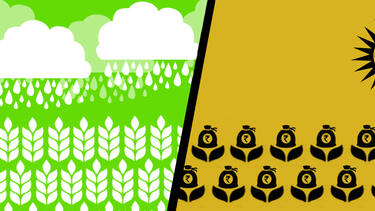Faculty Viewpoints
What Will Climate Change Do to the Economy?
Modeling the economic consequences of climate change is difficult, uncertain work. In addition, any result is sure to be subjected to political attack. For decades, Yale's William Nordhaus has been developing models that can inform policy decisions.

The Secret of Effective Motivation
What kinds of motives are most conducive to success? In a New York Times op-ed, Professor Amy Wrzesniewski and coauthor Barry Schwartz discuss their research looking at the motives of new West Point cadets and how they relate to success as Army officers.
Is Germany’s World Cup Triumph a Triumph of Management?
Yale SOM’s David Bach finds five key factors behind Germany’s victory at the 2014 World Cup in Brazil—and they’re all about smart management.
Donors Give More When They Have a Sense of Belonging
Recent research, drawing on behavioral economics, suggests that donors make larger contributions to a nonprofit organization when they have a sense of active involvement in the organization's mission. In an op-ed for the New York Times, Professor Robert Shiller suggests that changes to legal and institutional structures could be powerful new tools to increase engagement and giving.
How Does Your Theory of Markets Shape Your Portfolio?
Investors put financial theory into practice every day. How efficient are markets? Can market participants advantageously match their capabilities to the right investments or leverage an information advantage? A panel of asset managers discusses how they see the theories playing out in real markets.
Buying Insurance Against Climate Change
In a New York Times op-ed, Professor Robert Shiller writes that efforts to prepare for climate change should include the use of private institutions of risk management, such as insurance and securitization, to share risk and smooth the unpredictable effects of future disasters.
Can Green Banks Revolutionize the Clean Energy Industry?
The idea of “green banks”—public lending institutions designed to help finance private clean energy projects—has been around for a while, but states have recently begun establishing their own versions. With the federal government slow to innovate in the sector, state officials are hoping to provide crucial support for clean energy and spur economic growth. But to work, green banks require a rethinking of the nature of the private-public relationship.
Can Insurance Help the Poor Manage Risk?
Rainfall insurance can help a farmer survive a drought year and ultimately increase prosperity in rural areas. So why aren’t more using it? Many people in developing countries rely on informal insurance, such as a family network, rather than formal insurance. Yale SOM professor Mushfiq Mobarak’s research has tested the effects of formal insurance for farmers in India and elucidated how the two systems interact.

In Search of a Stable Electronic Currency
In a New York Times op-ed, Professor Robert J. Shiller writes that Bitcoin is a speculative bubble with a doubtful future, but its legacy should be that we move toward a system of stable economic units of measurement backed by sophisticated forms of electronic payment.
Women as Bosses Still Face Bias
In a New York Times op-ed, Professors Victoria Brescoll and Jeffrey Sonnenfeld write about the gender bias and discrimination that persist for powerful women in corporate America.